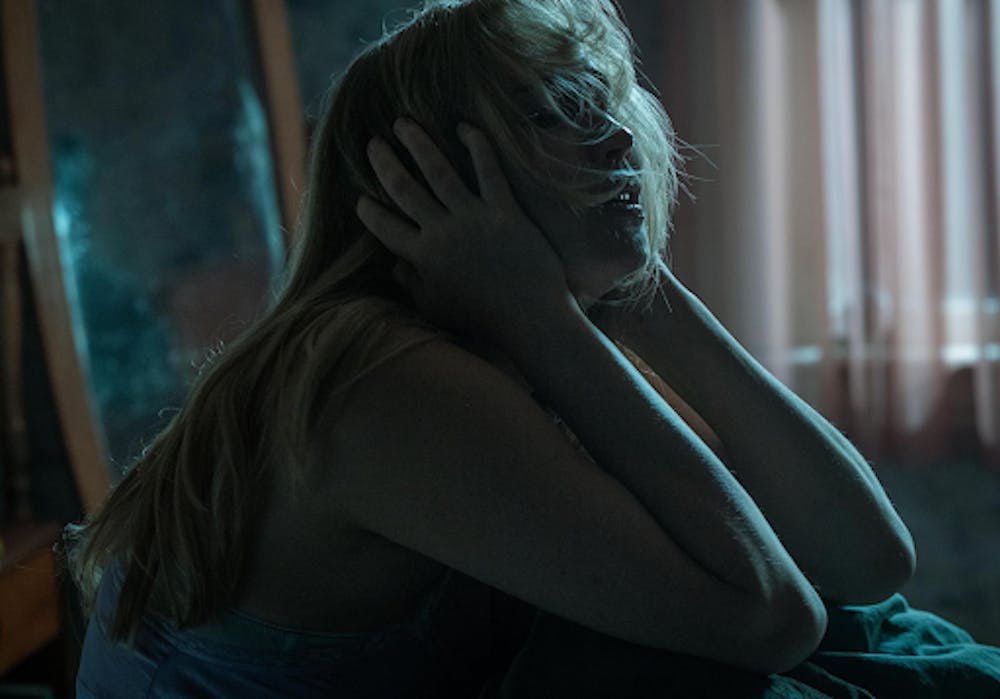By Molly Tursi
Staff Writer
Since time immemorial, motherhood has been regarded as the donor of life and beginning of the world as we’ve come to be. To nurture a child is a complete offering of the body and mind, and likely the most difficult yet rewarding sacrifice a woman may make in her life. While veritable in nature, this is an idyllic idea promised to women that disregards the torment of postpartum depression.
The distortion of motherhood is laid bare in the psychological drama “Die My Love,” directed by the Scottish filmmaker and cinematographer Lynne Ramsay. The film was produced by star Jennifer Lawrence and the legendary filmmaker Martin Scorsese under Lawrence’s own production company Excellent Cadaver.
Released to theaters on Nov. 7, the film fell short at the box office with an estimated $2.8 million in domestic ticket sales according to the New York Times. Despite the lack of commercial success, “Die My Love” received positive feedback from critics with minimal pushback. On the other end of the spectrum, the film’s grim subject matter polarized general audiences.
Based on the 2017 novel by Argentine author Ariana Harwicz, “Die My Love” stars Oscar winning actress Lawrence and Robert Pattinson as the post-marital couple Grace and Jackson as they adapt to a stunted parenthood.
Filtered through Grace’s perspective, the film envelops audiences into an aggressive instance of postpartum psychosis. Throughout unchronological fragments of illusions and vignettes, Grace unravels in front of her husband Jackson, who struggles to mitigate his wife’s ailing mental health. Under the strain of their relationship the couple’s baby is put at risk, painting a disconcerting picture of a burdened marriage and parenthood.
Set amongst the gothic backdrop of rural Montana, themes of sequestration and mania are excruciatingly loud. Bereft of amorous affection from her husband, Grace succumbs to her sexual and animalistic delusions while sheltered in an equally lonesome home. The solitary and dilapidated condition of Grace and Jackson’s home added a layer of unrest to the deterioration of Grace’s mental stability. The cinematography masterfully embodies the rustic hues and tones of the setting with a dim overlay of color.
Beneath the couples’ trying relationship is the laborious restoration of love and the will to support a loved one, even when they’re astray from their true self. Lawrence and Pattinson’s performances are a tour de force of frustration, resentment and grief. The costars’ talent fuses together to unleash an onslaught of emotional force onto viewers and ground Grace and Jackson to reality.
While Lynne Ramsay approaches the film with psychological deliberation, the film is partially weighed down by her artistically heavy hand. Intended to be told by a discordant sequence, certain moments and motifs feel overwhelmingly perplexing and forcibly skew the narrative. In compensation, the ending is coherent to the story without tampering with character or blurring interpretation.
“Die My Love” is a thought provoking, emotionally harrowing and subtly humorous film to take to heart. Gritty and divisive, the film portrays the vulnerability of postpartum psychosis that can resonate or repel an audience. Whether the film strikes a chord with viewers is entirely dependent on interpretation as objective analysis does the film a creative injustice.







